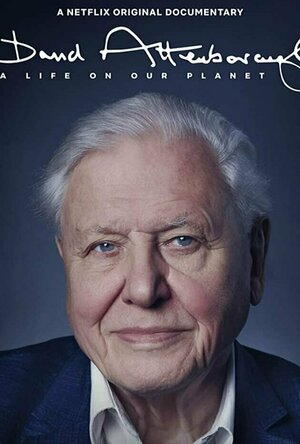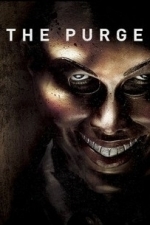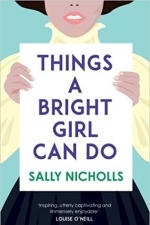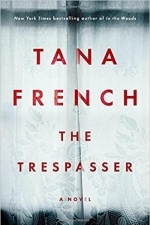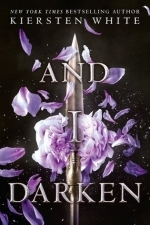Search
Search results
Sarah (7800 KP) rated David Attenborough: A Life on Our Planet (2020) in Movies
Oct 14, 2020
Bleak and interesting
David Attenborough is possibly the most recognised face (and voice) when it comes to nature and our planet, and it’d be safe to say he’s also one of the most respected advisors on the environment. Now 94 years old, A Life on Our Planet is his “witness statement” for the environment and details his 60+ year career and how steeply the planet has declined during this time.
In the opening scene of this documentary Attenborough is in Chernobyl, the site of one of the worst man-made disasters in history. His comparison of the impact of the Chernobyl disaster to the impact humanity is having gradually on the environment is not one that many would have even considered, but it’s provides a stark warning. And it continues in this same vein throughout.
Whilst this still features beautifully captured videos of nature and historical footage of Attenborough throughout his career, this documentary has very dark and bleak overtones. Even the statistics on world population, carbon content and decrease in wilderness provided for certain years in Attenborough’s career prove to be crystal clear and unmistakably illustrating just how badly we’ve treated our planet in the space of a mere 90 years. For reference, wilderness in the 1930s was at 66% - in 2020 it has nearly halved to 35%. When you see it there in black and white, it’s terrifying.
Even more terrifying is Attenborough’s glimpse into the future. Showing what will happen to us and our planet in the 2030s to 2100s and beyond, it’s scarier than any horror film you will ever see. And what’s worrying is that the chances of this happening is a lot more likely than anything you see in a scary movie.
Fortunately this does move away from the rather effective warnings and dark tones and goes on to discuss how we can change to prevent this bleak future from coming true. These resolutions – stopping deforestation and overfishing, stabilising the population, more plant based diets – are nothing that we haven’t heard of before. However Attenborough does at least go on to suggest how we as a planet can move towards achieving the above and promote some rather positive success stories where this has already been achieved in a number of places across the globe.
My problem with this documentary is two fold. For one, Attenborough steers clear of the politics and blame game and doesn’t point the finger at any areas of society that may be more at fault than others (i.e. the super wealthy and their excesses). He just seems like he’s being too nice when really he needs to call out the people and areas that hold more responsibility.
My other issue is that he doesn’t relate the solutions to how we can help as individuals. Other than moving to a more plant based diet, the solutions proposed are not things that Joe public can help with and for me personally I found this very frustrating. I want to know what I personally can do to help and sadly I have no control over poaching, deforestation or over-fishing. I barely have any input into my local council’s initiative to build thousands of houses on the greenbelt behind my house, so the issues and solutions discussed here seem rather overwhelming and feel almost impossible to achieve.
However despite this, Attenborough has created a rather bleak and stark documentary that proves to be both depressing and incredibly moving and informative to watch. It will undoubtedly spur many into action and prove to be the warning we as a people need, especially with the final scenes showing how the wilderness has returned to Chernobyl and Attenborough’s reminder that we’re not saving the planet, we’re saving ourselves. I just hope those higher up that have the true power to put the solutions in place have watched this and taken note.
In the opening scene of this documentary Attenborough is in Chernobyl, the site of one of the worst man-made disasters in history. His comparison of the impact of the Chernobyl disaster to the impact humanity is having gradually on the environment is not one that many would have even considered, but it’s provides a stark warning. And it continues in this same vein throughout.
Whilst this still features beautifully captured videos of nature and historical footage of Attenborough throughout his career, this documentary has very dark and bleak overtones. Even the statistics on world population, carbon content and decrease in wilderness provided for certain years in Attenborough’s career prove to be crystal clear and unmistakably illustrating just how badly we’ve treated our planet in the space of a mere 90 years. For reference, wilderness in the 1930s was at 66% - in 2020 it has nearly halved to 35%. When you see it there in black and white, it’s terrifying.
Even more terrifying is Attenborough’s glimpse into the future. Showing what will happen to us and our planet in the 2030s to 2100s and beyond, it’s scarier than any horror film you will ever see. And what’s worrying is that the chances of this happening is a lot more likely than anything you see in a scary movie.
Fortunately this does move away from the rather effective warnings and dark tones and goes on to discuss how we can change to prevent this bleak future from coming true. These resolutions – stopping deforestation and overfishing, stabilising the population, more plant based diets – are nothing that we haven’t heard of before. However Attenborough does at least go on to suggest how we as a planet can move towards achieving the above and promote some rather positive success stories where this has already been achieved in a number of places across the globe.
My problem with this documentary is two fold. For one, Attenborough steers clear of the politics and blame game and doesn’t point the finger at any areas of society that may be more at fault than others (i.e. the super wealthy and their excesses). He just seems like he’s being too nice when really he needs to call out the people and areas that hold more responsibility.
My other issue is that he doesn’t relate the solutions to how we can help as individuals. Other than moving to a more plant based diet, the solutions proposed are not things that Joe public can help with and for me personally I found this very frustrating. I want to know what I personally can do to help and sadly I have no control over poaching, deforestation or over-fishing. I barely have any input into my local council’s initiative to build thousands of houses on the greenbelt behind my house, so the issues and solutions discussed here seem rather overwhelming and feel almost impossible to achieve.
However despite this, Attenborough has created a rather bleak and stark documentary that proves to be both depressing and incredibly moving and informative to watch. It will undoubtedly spur many into action and prove to be the warning we as a people need, especially with the final scenes showing how the wilderness has returned to Chernobyl and Attenborough’s reminder that we’re not saving the planet, we’re saving ourselves. I just hope those higher up that have the true power to put the solutions in place have watched this and taken note.
Jesters_folly (230 KP) rated The Purge (2013) in Movies
Jan 28, 2021
Contains spoilers, click to show
I wanted a 'Killer in masks/home invasion' and that's what I got but there is a lot going on it 'The Purge' :
1) We have the purge itself, a new political party has come in and started titular Purge, one night a year where any crime is legal (although the emphasis is on killing and, via subtext, rape). There are a few exceptions stated at the start of the film and, although it's not directly stated, it seems that minors are exempt, in that they can be targets but not actually participate in the killing.
2)The 'Boyfriend' subplot. This could have led to the main plot but seems to be there just to keep us off track at the beginning.
3) The bloody stranger - ok he's needed as he's the main McGuffin
4) The Freaks, Yes the film needs it's antagonists and it's sometimes good to throw in a red herring but we have; The Freaks, Henry (the boy friend), The Bloody stranger who is suspected as being dangerous when he first arrives, even Janes Sandin looks like he could be the antagonist when he is going to throw the stranger out of the house, then we have...
5) The neighbours - even from the start of the film there is something off about them.
6) Add all of this together with a lot of politics and you have a very layered film.
The first half of the film is mainly set up, setting up the idea of the purge and introducing the characters, there are a few shots of violence in the beginning but the film starts off slow. Then it explodes in violence.
Although the concept is the same, The Purge is a different beast to something like 'The Strangers', both films spend time building up to the the action but, when the action starts, the Purge is much faster paced, mainly because there are more 'hunters' and they have guns.
The Purge is also a very political film but it doesn't go down the 'rich vs poor' root that a lot of films do, this is mentioned a bit but only to back up the thinking behind some of those who partake in the event. The film shows two sides of the Purge and mentions two more, you have those that want to take part in the event and those (like the main family) who don't, the Sandin's just want to get through the night where as the 'Freaks' happily take part in it. It's also mentioned that there are those who can not protect themselves (the poor) and those that object.
After watching it I am left with two questions:
1) what happened to Henrys body? We last saw it in Zoey's room, no one mentioned moving it and it couldn't have been taken out of the house but it was never seen when the Freaks were going room to room, they even went into the room where it should have been.
2) were the cookies poisoned? The neighbour said they saw the shutters come down (pulled off) and decided to take the opportunity to kill the Sandins but the hatred was already there so could the cookies have been another way to kill them off. It's true that they would have had to have been cooked before the purge officially started but, going by when they given, they would not have been eaten until either a few minuets before the start or after it had started and I doubt that anyone official would pay too much attention to the bodies after the purge. There would be too many even if they wanted too.
1) We have the purge itself, a new political party has come in and started titular Purge, one night a year where any crime is legal (although the emphasis is on killing and, via subtext, rape). There are a few exceptions stated at the start of the film and, although it's not directly stated, it seems that minors are exempt, in that they can be targets but not actually participate in the killing.
2)The 'Boyfriend' subplot. This could have led to the main plot but seems to be there just to keep us off track at the beginning.
3) The bloody stranger - ok he's needed as he's the main McGuffin
4) The Freaks, Yes the film needs it's antagonists and it's sometimes good to throw in a red herring but we have; The Freaks, Henry (the boy friend), The Bloody stranger who is suspected as being dangerous when he first arrives, even Janes Sandin looks like he could be the antagonist when he is going to throw the stranger out of the house, then we have...
5) The neighbours - even from the start of the film there is something off about them.
6) Add all of this together with a lot of politics and you have a very layered film.
The first half of the film is mainly set up, setting up the idea of the purge and introducing the characters, there are a few shots of violence in the beginning but the film starts off slow. Then it explodes in violence.
Although the concept is the same, The Purge is a different beast to something like 'The Strangers', both films spend time building up to the the action but, when the action starts, the Purge is much faster paced, mainly because there are more 'hunters' and they have guns.
The Purge is also a very political film but it doesn't go down the 'rich vs poor' root that a lot of films do, this is mentioned a bit but only to back up the thinking behind some of those who partake in the event. The film shows two sides of the Purge and mentions two more, you have those that want to take part in the event and those (like the main family) who don't, the Sandin's just want to get through the night where as the 'Freaks' happily take part in it. It's also mentioned that there are those who can not protect themselves (the poor) and those that object.
After watching it I am left with two questions:
1) what happened to Henrys body? We last saw it in Zoey's room, no one mentioned moving it and it couldn't have been taken out of the house but it was never seen when the Freaks were going room to room, they even went into the room where it should have been.
2) were the cookies poisoned? The neighbour said they saw the shutters come down (pulled off) and decided to take the opportunity to kill the Sandins but the hatred was already there so could the cookies have been another way to kill them off. It's true that they would have had to have been cooked before the purge officially started but, going by when they given, they would not have been eaten until either a few minuets before the start or after it had started and I doubt that anyone official would pay too much attention to the bodies after the purge. There would be too many even if they wanted too.

YuppTV - Live TV & Movies
Entertainment and News
App
Live TV, Catch-up TV, Movies, TV Shows, News, Bazaar - Short films, Web series, Music Videos YuppTV...

The Weather Station by The Weather Station
Album Watch
On her fourth (and tellingly self-titled) album as The Weather Station, Tamara Lindeman reinvents,...
alternative folk rock
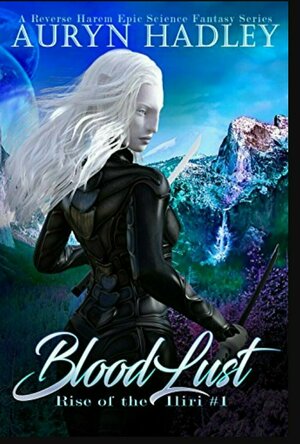
Bloodlust (The Rise Of Iliri #1)
Book
"Bloodlust, and the Rise of the Iliri series as a whole, will blow you mind, break your heart, and...
Young adult Vampire Vampyre Ilirri Young adult Teen
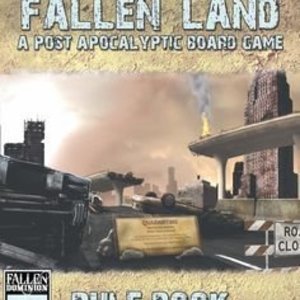
Fallen Land: A Post Apocalyptic Board Game
Tabletop Game
Set in a post-apocalyptic sci-fi setting, Fallen Land: A Post Apocalyptic Board Game is a hybrid...
Chris Hooker (419 KP) rated No Way Home (A Science Fiction Anthology) in Books
Jan 12, 2018
I received [No Way Home] from author [Harry Manners] in exchange for a honest review. This collection of short stories with the theme of being stranded, in one way or another, was a thought provoking read.
[To Sing of Chaos and Eternal Night] by [Lucas Bale] took me a few days to get past the beginning. The concept of a soldier who has lost all being and is just thought sent to robotic bodies and told to fight the enemy was interesting. As I stated, unfortunately, it was a slow start but the ending was worth the read.
[XE, or People Are Strange] by [S. Elliot Brandis]gave a new meaning to getting away from it all. The main character, Bradley, volunteers to be put in a shuttle to find a new habitable plant. His mission is one way and he is to send a signal back to Earth if it is a safe place. Apparently, though, he is not the first, or only, person on the new planet. I really liked the twist in this story.
[Grist] by [J.S. Collyer] is a futuristic view where one entity has taken control and all others are forced to work for them, often underground. Wyatt was not born into this so he remembers fresh air and sun. He wants to escape and be free again. Just daring to think this way can be deadly and he must know who to trust. The question this story had me asking was what is life worth?
[Merely A Madness] by [S.W. Fairbrother] was one I was really excited to see in this collection because I had read [The Secret Dead] and loved it. [Merely A Madness] did not disappoint in anyway. Earth has become a hostile place but most people have escaped off planet. Hannah loves old earth and Mullen sets up a holiday because he aims to please. This would be like current day people going to a wild west ranch, real but not too real. Things go horribly wrong and Mullen must make a hard choice. This story was one of my favorites by far.
[Revolver] by [Michael Patrick Hicks] was the most overtly political and also one of the most enjoyable. The concept of reality TV and politics preying on the unfortunates is so scary because it is not far from our current reality. I really loved the statement made in this one.
[The Happy Place] by [Harry Manners] was a story of a dream gone horribly wrong. Michael has always dreamed of going to the stars and with his wife this dream becomes a reality as he is chosen to colonize Mars. Years later he realizes his dream may be a nightmare as he begins to lose everything he loves. The only thing that keeps him going is 'the Happy Place', a virtual reality of his memories from Earth, but keeping this secret from those he loves may cost him even more. This is the third work I have read from [Harry Manners] and I love how he handles loneliness and making hard decisions. His characters are always deeper than they first appear.
[Renata] by [Nadine Matheson] is a futuristic spy story wrapped in a mob hit with political intrigue. Yes, I enjoyed this one as well. Kaoru is an assassin who gets his assignments from his brother. His latest target is in the past. This is the assignment that may just kill him.
[Cold Witness] by [A.S. Sinclair] was a mental thriller. John Marshall is sent to check out an abandoned military complex that he is told little about. When he arrives there he hears rumors of strange things involving the final project at the base. Upon arrival he begins hallucinating and his memories begin to meld with others. The question of what is reality is constant throughout.
All the stories were well written and enjoyable. I also liked how each author wrote an "Afterword" that explained a little of how they came up with the concept they did. I recommend this to any fan of futuristic and science fiction.
[To Sing of Chaos and Eternal Night] by [Lucas Bale] took me a few days to get past the beginning. The concept of a soldier who has lost all being and is just thought sent to robotic bodies and told to fight the enemy was interesting. As I stated, unfortunately, it was a slow start but the ending was worth the read.
[XE, or People Are Strange] by [S. Elliot Brandis]gave a new meaning to getting away from it all. The main character, Bradley, volunteers to be put in a shuttle to find a new habitable plant. His mission is one way and he is to send a signal back to Earth if it is a safe place. Apparently, though, he is not the first, or only, person on the new planet. I really liked the twist in this story.
[Grist] by [J.S. Collyer] is a futuristic view where one entity has taken control and all others are forced to work for them, often underground. Wyatt was not born into this so he remembers fresh air and sun. He wants to escape and be free again. Just daring to think this way can be deadly and he must know who to trust. The question this story had me asking was what is life worth?
[Merely A Madness] by [S.W. Fairbrother] was one I was really excited to see in this collection because I had read [The Secret Dead] and loved it. [Merely A Madness] did not disappoint in anyway. Earth has become a hostile place but most people have escaped off planet. Hannah loves old earth and Mullen sets up a holiday because he aims to please. This would be like current day people going to a wild west ranch, real but not too real. Things go horribly wrong and Mullen must make a hard choice. This story was one of my favorites by far.
[Revolver] by [Michael Patrick Hicks] was the most overtly political and also one of the most enjoyable. The concept of reality TV and politics preying on the unfortunates is so scary because it is not far from our current reality. I really loved the statement made in this one.
[The Happy Place] by [Harry Manners] was a story of a dream gone horribly wrong. Michael has always dreamed of going to the stars and with his wife this dream becomes a reality as he is chosen to colonize Mars. Years later he realizes his dream may be a nightmare as he begins to lose everything he loves. The only thing that keeps him going is 'the Happy Place', a virtual reality of his memories from Earth, but keeping this secret from those he loves may cost him even more. This is the third work I have read from [Harry Manners] and I love how he handles loneliness and making hard decisions. His characters are always deeper than they first appear.
[Renata] by [Nadine Matheson] is a futuristic spy story wrapped in a mob hit with political intrigue. Yes, I enjoyed this one as well. Kaoru is an assassin who gets his assignments from his brother. His latest target is in the past. This is the assignment that may just kill him.
[Cold Witness] by [A.S. Sinclair] was a mental thriller. John Marshall is sent to check out an abandoned military complex that he is told little about. When he arrives there he hears rumors of strange things involving the final project at the base. Upon arrival he begins hallucinating and his memories begin to meld with others. The question of what is reality is constant throughout.
All the stories were well written and enjoyable. I also liked how each author wrote an "Afterword" that explained a little of how they came up with the concept they did. I recommend this to any fan of futuristic and science fiction.
Christina Haynes (148 KP) rated Things a Bright Girl Can Do in Books
Feb 10, 2018
THINGS A BRIGHT GIRL CAN DO by SALLY NICHOLLS
In 1903 Emmeline Pankhurst founded a new organisation called 'The Woman's Social and Political Union’ because she like many other women believed that they should be equal to men and be allowed a vote!
Although women over thirty did get the vote in 1918 - after the bill was passed. It wasn't until 1928 that all women got the vote. But unfortunately, Emmeline Pankhurst died before she got to see this happen.
When WWI broke out men had to go and fight, leaving their jobs to the woman. This was the start of women getting more opportunities. Even though they weren't being paid the same, they were still happy to be doing something to help. (Though that's a different story)
But this whole having a job, and helping with the war was only for the meantime, because after the war men wanted their jobs back!
Things a Bright Girl Can Do is about three girls who live in this time. Three girls who want to do more with their lives. Three girls who want freedom and the chance to be different.
Evelyn, May, and Nell.
Evelyn is seventeen and has dreamt of going to a university like her brother, but is unable to do so because, for the simple fact, she's a girl!
But mind you, she is probably smarter than her brother. Or any boy for that matter. So what does she do? She joins the suffragettes! And by doing this she see’s exactly what it's like to be a suffragette and what they do first hand. Though it's not as nice as it seems. She takes part in a hunger strike while she's in prison; like many suffragettes before her. She gets ill afterward and though she did what she believed was right, she soon realized that it wasn't such a great idea.
But in some ways, it made her a better person in the future because she knew exactly what it was like and why they were fighting for their rights.
May is fifteen and has been a part of the suffragettes along with her mother for a while now. She campaigns and she fights for the rights of women in a peaceful way. By handing out flyers, by going to meetings and talks. Again like Evelyn, she knows what it's like to have money and to be in a better situation than some women who don't even have that.
Nell, who’s grown up not knowing money, she's always tried to work and help her mother with whatever she can. She later meets May and the two of them fall in love and dream of a better world. She joins the cause of ‘Women's Rights’ and fights for them. Because why should men get everything?
All three girls are very different and all want something out of their vote. They all become a part of the suffragettes in their own different ways.
Sally Nicholls gives you a great insight into the past, bringing it to life again. Questioning what life was like back then, for woman and the government. She does all this by turning three stories into a reality that we all now take for granted. Even now women don't use their votes.
My opinion is that no matter whether you like politics or even believe in them, you should always use your vote. That's what I think anyway. For the simple fact, women died for your right to vote. It's your life as well you should use your vote to make the world better. To have a say.
From the suffragettes to WWI and it's 'we can do it’ attitude, this book is amazing inside and out. From the facts and the stories within its pages to the history lesson of fighting for your rights - to what women did to help in the war, you need to try this book.
So would you be one of the suffragettes, or did you have one in your family? It would be interesting to know.
Just remember, we can all do it.
Love, Christina ?
Although women over thirty did get the vote in 1918 - after the bill was passed. It wasn't until 1928 that all women got the vote. But unfortunately, Emmeline Pankhurst died before she got to see this happen.
When WWI broke out men had to go and fight, leaving their jobs to the woman. This was the start of women getting more opportunities. Even though they weren't being paid the same, they were still happy to be doing something to help. (Though that's a different story)
But this whole having a job, and helping with the war was only for the meantime, because after the war men wanted their jobs back!
Things a Bright Girl Can Do is about three girls who live in this time. Three girls who want to do more with their lives. Three girls who want freedom and the chance to be different.
Evelyn, May, and Nell.
Evelyn is seventeen and has dreamt of going to a university like her brother, but is unable to do so because, for the simple fact, she's a girl!
But mind you, she is probably smarter than her brother. Or any boy for that matter. So what does she do? She joins the suffragettes! And by doing this she see’s exactly what it's like to be a suffragette and what they do first hand. Though it's not as nice as it seems. She takes part in a hunger strike while she's in prison; like many suffragettes before her. She gets ill afterward and though she did what she believed was right, she soon realized that it wasn't such a great idea.
But in some ways, it made her a better person in the future because she knew exactly what it was like and why they were fighting for their rights.
May is fifteen and has been a part of the suffragettes along with her mother for a while now. She campaigns and she fights for the rights of women in a peaceful way. By handing out flyers, by going to meetings and talks. Again like Evelyn, she knows what it's like to have money and to be in a better situation than some women who don't even have that.
Nell, who’s grown up not knowing money, she's always tried to work and help her mother with whatever she can. She later meets May and the two of them fall in love and dream of a better world. She joins the cause of ‘Women's Rights’ and fights for them. Because why should men get everything?
All three girls are very different and all want something out of their vote. They all become a part of the suffragettes in their own different ways.
Sally Nicholls gives you a great insight into the past, bringing it to life again. Questioning what life was like back then, for woman and the government. She does all this by turning three stories into a reality that we all now take for granted. Even now women don't use their votes.
My opinion is that no matter whether you like politics or even believe in them, you should always use your vote. That's what I think anyway. For the simple fact, women died for your right to vote. It's your life as well you should use your vote to make the world better. To have a say.
From the suffragettes to WWI and it's 'we can do it’ attitude, this book is amazing inside and out. From the facts and the stories within its pages to the history lesson of fighting for your rights - to what women did to help in the war, you need to try this book.
So would you be one of the suffragettes, or did you have one in your family? It would be interesting to know.
Just remember, we can all do it.
Love, Christina ?
Kristy H (1252 KP) rated The Trespasser: Dublin Murder Squad in Books
Feb 1, 2018
We're up to the sixth installment in Tana French's Dublin Murder Squad series and she's still going strong. In this one, we hear from Antoinette Conway, the partner of Stephen Moran from French's previous novel, [b:The Secret Place|20821043|The Secret Place (Dublin Murder Squad, #5)|Tana French|https://images.gr-assets.com/books/1396671263s/20821043.jpg|21598636]. Being a Detective on the Murder Squad isn't everything Antoinette hoped for. She isn't fitting in on the male squad--most of whom tease and prank her viciously--and she and Steve seem only to receive the most bland, boring cases. Not much bothers Antoinette, but she's about ready to leave the Squad behind for good. So when the latest case comes in--handed straight to Conway and Moran by their boss--it looks like much of the same: another domestic dispute. Beautiful, blond Aislinn Murray has been killed in her home. It looks like a typical lover's quarrel gone wrong. Aislinn's table is set for a romantic dinner, and she's dressed up for a beau. But as Antoinette and Steve investigate, they find things aren't exactly what they seem. Why is their colleague, Detective Breslin, so involved in their case? Why does Antoinette keep seeing someone following her home? And why is the local media out to get her? Antoinette knows the Squad doesn't like her, but now it seems like the hatred is wrapped up in her case, too. Who can she trust--and where will it end?
I'll say it up front: this was an excellent mystery. Just a wonderful read. I love all of French's novels, but thoroughly enjoyed this one. Antoinette was a refreshing voice and completely relatable. Her case was interesting and well-plotted, leaving you constantly guessing. As per a typical French novel, you don't receive just a simple mystery; each of her books comes with a backstory. In this one, we see Antoinette battling her demons and her inability to fit in with her Squad. Are they really out to get her, or is it all in her head? It's true that French's books probably aren't for everyone. There's a lot of talking, a lot of expounding, and a lot of knowing what her characters are thinking. But, in turn, you're presented with characters who are so complex, so rich and in-depth. It's amazing. I've said it in previous reviews, but I love that when I open one of French's novels, I know that I'll be completely transported into another world for a few days. Her writing is strong that you completely inhabit her characters and their environment.
Antoinette, as mentioned, is a complex female character -- strong yet vulnerable and just completely refreshing to find in a detective novel. Her relationship with Moran was very enjoyable to read about, especially after hearing about their initial early meeting in [b:The Secret Place|20821043|The Secret Place (Dublin Murder Squad, #5)|Tana French|https://images.gr-assets.com/books/1396671263s/20821043.jpg|21598636] from Moran's point of view. There's a humor to Conway, lending levity when needed, but also a dark side. She's bitter with the world for a reason. Because the entire book is told from her perspective, we're figuring out the mystery with her, learning facts and alibis as she does, and unraveling the plot along with our detective. Of course, we're limited to seeing the case from her perspective, too. As Moran and Conway try to determine who they can trust, so do we. The book expertly leaves you guessing with the plot; it takes you in one direction early in an incredibly convincing matter. It also skillfully takes you inside the Squad, allowing us to see not only how a case is run, but the inner politics.
In this way, the novel is not just a well-crafted mystery but a lovely treatise on relationships and friendships and the lengths we go for both. I'm also left amazed at how much French can put into a novel. Her way with words is magical, and I just love her books, her stories, and her characters. I highly recommend this novel, or any of her earlier work. 4.5 stars.
I'll say it up front: this was an excellent mystery. Just a wonderful read. I love all of French's novels, but thoroughly enjoyed this one. Antoinette was a refreshing voice and completely relatable. Her case was interesting and well-plotted, leaving you constantly guessing. As per a typical French novel, you don't receive just a simple mystery; each of her books comes with a backstory. In this one, we see Antoinette battling her demons and her inability to fit in with her Squad. Are they really out to get her, or is it all in her head? It's true that French's books probably aren't for everyone. There's a lot of talking, a lot of expounding, and a lot of knowing what her characters are thinking. But, in turn, you're presented with characters who are so complex, so rich and in-depth. It's amazing. I've said it in previous reviews, but I love that when I open one of French's novels, I know that I'll be completely transported into another world for a few days. Her writing is strong that you completely inhabit her characters and their environment.
Antoinette, as mentioned, is a complex female character -- strong yet vulnerable and just completely refreshing to find in a detective novel. Her relationship with Moran was very enjoyable to read about, especially after hearing about their initial early meeting in [b:The Secret Place|20821043|The Secret Place (Dublin Murder Squad, #5)|Tana French|https://images.gr-assets.com/books/1396671263s/20821043.jpg|21598636] from Moran's point of view. There's a humor to Conway, lending levity when needed, but also a dark side. She's bitter with the world for a reason. Because the entire book is told from her perspective, we're figuring out the mystery with her, learning facts and alibis as she does, and unraveling the plot along with our detective. Of course, we're limited to seeing the case from her perspective, too. As Moran and Conway try to determine who they can trust, so do we. The book expertly leaves you guessing with the plot; it takes you in one direction early in an incredibly convincing matter. It also skillfully takes you inside the Squad, allowing us to see not only how a case is run, but the inner politics.
In this way, the novel is not just a well-crafted mystery but a lovely treatise on relationships and friendships and the lengths we go for both. I'm also left amazed at how much French can put into a novel. Her way with words is magical, and I just love her books, her stories, and her characters. I highly recommend this novel, or any of her earlier work. 4.5 stars.
Louise (64 KP) rated And I Darken (The Conqueror's Saga #1) in Books
Jul 2, 2018
First I would like to say a massive thank you to Goodreads as I won myself a copy on one of their giveaways( Aren’t they great!)
And I Darken is a new Historical fiction/Re-telling of Vlad the Impaler but gender swapped. Goodreads have it listed as being a fantasy, but there is no magic or any paranormal goings on whatsoever…glad we got that cleared up.
Our story follows Ladislav (Lada) and Radu Dragwyla the descendants of Vlad Dracul, Prince of Wallachia. Vlad is a vile human being and uses his own children for bargaining with the Ottoman Empire, there lives are at risk if he does not keep to the treaties terms. Living in the Ottoman Empire is risky for Lada and Radu, Lada could easily be married off to some suitor for allegiance or killed whichever is easier for the Sultan. Running the grounds they bump into a young boy the same age as them, only to find that he is the Sultan’s son Mehmed. Mehmed is a lonely boy with only his tutors for company so he befriends them both and shares all his education and time with them, which in turn takes them out of the spotlight.
Lada is a very strong character, she is a force to be reckoned with. She is brutal,fierce and just a total badass throughout the book. Being born a woman is one almighty struggle to be taken seriously in the 1400’s. She knows that she is the rightful heir of Wallachia at the young age of 11. She wants to impress her father with her fighting skills and there is a point when she thinks she has, but the only thoughts her father has is marrying her off to a suitor and being a dutiful wife. Lada is very family orientated and has a very unique relationship with her brother Radu but she will never show any emotion as this is a sign of weakness and she is perceived as a cold-hearted bitch.
Radu was always a disappointment to his father, weak,cowardly and clinging to his nursemaids side infuriated Vlad. Radu was the more emotional of siblings, even though he was not great at fighting he had a devious and cunning mind that made him equally as dangerous as Lada.
My feelings towards the characters changed a lot throughout the book at first I thought Lada was just a psychotic child but realised she is trying to prove herself as being fierce. Radu he was very sweet throughout the book and always wanted his sister to just open up and tell him she loved him and for him to tell her his secrets and feelings. The main point is that they are flawed and this is what makes characters great.
Mehmed just annoyed me and he got in the way of Lada’s plans.
The book does contain romance, a love triangle where no one expresses their love for anyone as they are too scared of the consequences or that it will stop them from their goals in life. So the romance is frustrating to say the least.
This book has a lot of political intrigue,so be prepared for wars,treaties,soldiers and their ranks. This is Historical fiction but as in the author’s notes at the end it is not accurate and a lot is made up. Religion is also touched upon, mostly Islam with Christianity but it’s not too in your face or info dumping. The book is nearly 500 pages long! I felt it could have been shorter. I enjoyed the relationship between Radu and Lada,it was a very different set-up from what we are used to. This did take me a little longer to read as in places it was very slow and I found myself getting bored.
This book covers themes such as sibling rivalry, relationships, families, romance, feminism, sexism and politics
<img src="https://images.gr-assets.com/books/1476160834l/22817331.jpg"; width="120" height="180"/>
Now I Rise is the second installment of the And I Darken saga which is due to be released in June 2017 which I will be reading as I am interested in what is going to happen next with Lada.
Overall I rated this 3.5 out of 5 stars
And I Darken is a new Historical fiction/Re-telling of Vlad the Impaler but gender swapped. Goodreads have it listed as being a fantasy, but there is no magic or any paranormal goings on whatsoever…glad we got that cleared up.
Our story follows Ladislav (Lada) and Radu Dragwyla the descendants of Vlad Dracul, Prince of Wallachia. Vlad is a vile human being and uses his own children for bargaining with the Ottoman Empire, there lives are at risk if he does not keep to the treaties terms. Living in the Ottoman Empire is risky for Lada and Radu, Lada could easily be married off to some suitor for allegiance or killed whichever is easier for the Sultan. Running the grounds they bump into a young boy the same age as them, only to find that he is the Sultan’s son Mehmed. Mehmed is a lonely boy with only his tutors for company so he befriends them both and shares all his education and time with them, which in turn takes them out of the spotlight.
Lada is a very strong character, she is a force to be reckoned with. She is brutal,fierce and just a total badass throughout the book. Being born a woman is one almighty struggle to be taken seriously in the 1400’s. She knows that she is the rightful heir of Wallachia at the young age of 11. She wants to impress her father with her fighting skills and there is a point when she thinks she has, but the only thoughts her father has is marrying her off to a suitor and being a dutiful wife. Lada is very family orientated and has a very unique relationship with her brother Radu but she will never show any emotion as this is a sign of weakness and she is perceived as a cold-hearted bitch.
Radu was always a disappointment to his father, weak,cowardly and clinging to his nursemaids side infuriated Vlad. Radu was the more emotional of siblings, even though he was not great at fighting he had a devious and cunning mind that made him equally as dangerous as Lada.
My feelings towards the characters changed a lot throughout the book at first I thought Lada was just a psychotic child but realised she is trying to prove herself as being fierce. Radu he was very sweet throughout the book and always wanted his sister to just open up and tell him she loved him and for him to tell her his secrets and feelings. The main point is that they are flawed and this is what makes characters great.
Mehmed just annoyed me and he got in the way of Lada’s plans.
The book does contain romance, a love triangle where no one expresses their love for anyone as they are too scared of the consequences or that it will stop them from their goals in life. So the romance is frustrating to say the least.
This book has a lot of political intrigue,so be prepared for wars,treaties,soldiers and their ranks. This is Historical fiction but as in the author’s notes at the end it is not accurate and a lot is made up. Religion is also touched upon, mostly Islam with Christianity but it’s not too in your face or info dumping. The book is nearly 500 pages long! I felt it could have been shorter. I enjoyed the relationship between Radu and Lada,it was a very different set-up from what we are used to. This did take me a little longer to read as in places it was very slow and I found myself getting bored.
This book covers themes such as sibling rivalry, relationships, families, romance, feminism, sexism and politics
<img src="https://images.gr-assets.com/books/1476160834l/22817331.jpg"; width="120" height="180"/>
Now I Rise is the second installment of the And I Darken saga which is due to be released in June 2017 which I will be reading as I am interested in what is going to happen next with Lada.
Overall I rated this 3.5 out of 5 stars
